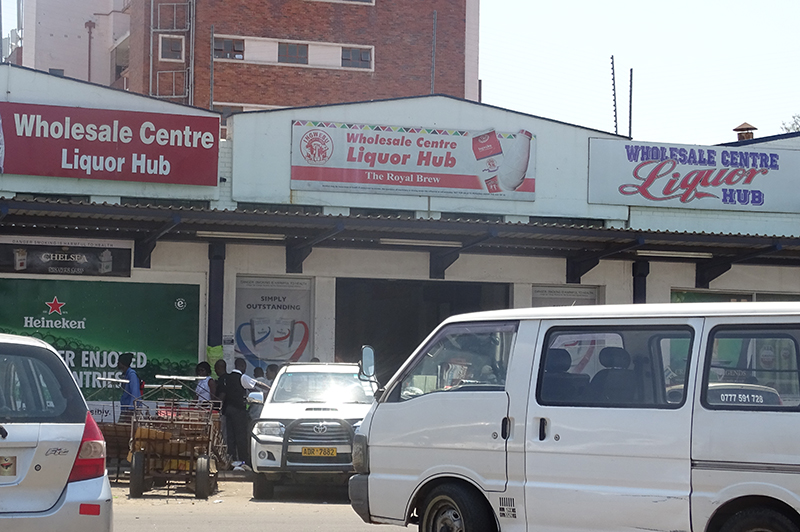By Senzeni Ncube and Tanaka Mrewa
The government has closed a liquor hub owned by Deputy Minister of Industry and Commerce, Raj Modi, in Bulawayo as part of a nationwide crackdown on smuggled goods.
The closure took place on Saturday evening. Eyewitnesses reported that officials entered the premises while customers were still shopping and demanded documentation that was not readily available.
“We were in the shop around 6 pm when officials arrived. They asked for paperwork, but it was unavailable, so they ordered the shop to close,” said a source.
Another informed source told CITE that an interministerial task force on smuggling that includes security organs and the Zimbabwe Revenue Authority (ZIMRA) ordered the closure of the outlet over smuggling allegations.
When a CITE news crew visited the outlet, located along Fife Street between 4th and 5th Avenues, on Monday morning, it remained closed.
Contacted for comment, Modi confirmed the closure, describing it as a routine verification process.
“Yes, it’s true. There is nothing wrong with it. They said they want to check and verify everything, and that was the whole point,” Modi said.
Speaking during a 2025 post-budget breakfast meeting in Bulawayo on Monday, Minister of Finance Mthuli Ncube highlighted the negative impact of smuggling on the formal economy.
“Smuggled goods are harming the formal sector, squeezing markets for retailers and manufacturers. This is a real problem, and that’s why we are taking aggressive measures to address it,” said Ncube.
He outlined a list of targeted goods, including alcoholic and non-alcoholic beverages, cement, clothing, footwear, dairy products, diapers, electrical appliances, processed meat, rice, pasta, sugar, tyres, motor parts, and detergents.
“These goods are deemed smuggled unless proven otherwise. We need to protect local manufacturers and ensure the resilience of our economy,” he said.
Ncube noted a rise in smuggling over the past few years, noting the need for stricter enforcement by ZIMRA in collaboration with law enforcement agencies.
“It’s important that our revenue authorities, working with security forces, act decisively. Smuggling is killing formal businesses and taking jobs. That’s why you’re seeing the current blitz at our borders and across the economy,” Ncube said.
The government has strengthened post-clearance audits and expanded surveillance initiatives, including drone monitoring launched earlier this year in Beitbridge.
“Our teams are out there, and we’ve instructed them to be aggressive to protect formal businesses,” he said, adding that the festive season would not lead to leniency.
Ncube warned traders against viewing smuggling as a normal business practice. “We want to ensure that our citizens operate within the law. Smuggling is not a sustainable way of doing business,” he said.

